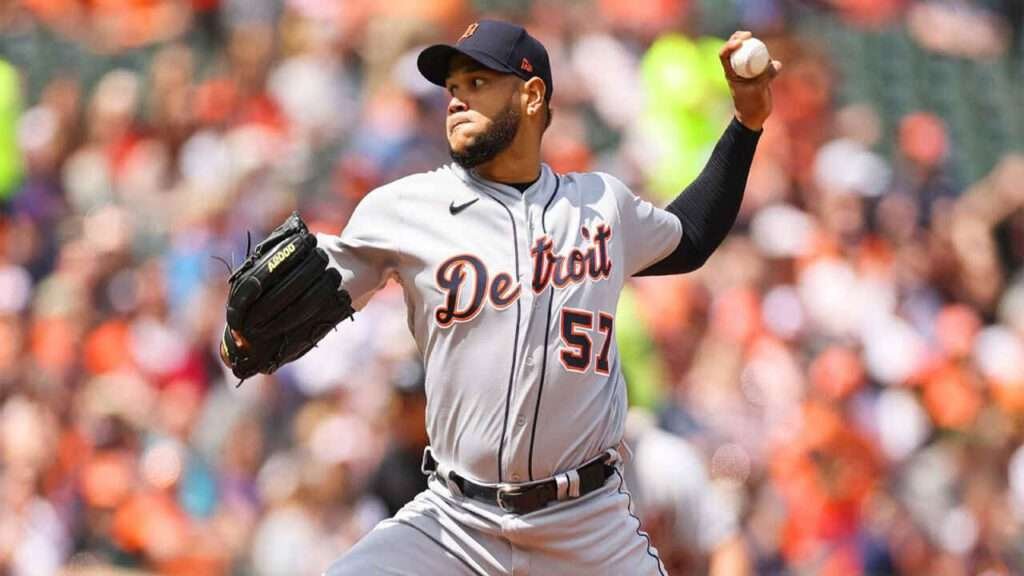In the world of Major League Baseball (MLB), decisions made by players can often have far-reaching implications. One recent decision that has captured the attention of both fans and experts alike is the choice made by Eduardo Rodriguez, the talented pitcher for the Detroit Tigers, to block a trade to the Los Angeles Dodgers. This unexpected turn of events has sparked debates and discussions across the baseball community, shedding light on various aspects of player autonomy, team dynamics, and the intricacies of trades within the league.
The Trade that Wasn’t Meant to Be

In late-breaking news, it was revealed that the Detroit Tigers and the Los Angeles Dodgers had been in discussions regarding a potential trade involving Eduardo Rodriguez. The specifics of the trade remain shrouded in mystery, but sources close to the situation indicate that it could have been a game-changer for both teams. However, Rodriguez’s decision to exercise his no-trade clause and block the trade has undoubtedly shifted the landscape and left fans wondering about the motivations behind this move.
Player Autonomy: A Closer Look
One of the most intriguing aspects of this situation is the concept of player autonomy. The no-trade clause is a contractual provision that allows players to veto trades to specific teams. It serves as a means of granting players a degree of control over their professional destiny, ensuring they have a say in their career trajectory. Eduardo Rodriguez’s decision to block the trade to the Dodgers underscores the significance of this clause and its impact on player decisions.
Team Dynamics and Locker Room Chemistry

While the details of the trade offer remain undisclosed, it is essential to consider the potential effects such a trade could have had on both teams’ dynamics. Baseball teams are often tight-knit communities, and the introduction of a new player can influence the existing locker room chemistry. In this case, Rodriguez’s decision might reflect his desire to remain a vital part of the Tigers’ roster and maintain the camaraderie he has developed with his teammates over the years
The Ripple Effect on Trade Strategies
Rodriguez’s choice to block the trade also prompts speculation about the Detroit Tigers’ trade strategy moving forward. As the team navigates the complexities of roster management, they must now reevaluate their options and consider alternative trades that align with their goals. This decision’s ripple effect underscores the intricacies involved in crafting a successful trade strategy that balances immediate needs with long-term objectives.
The Business of Baseball
Beyond the on-field dynamics, Rodriguez’s trade blockage brings to the forefront the business side of baseball. Trades are not only about player skills and team dynamics but also about financial considerations, marketability, and strategic planning. The decision to block a trade can have implications beyond the field, influencing a team’s financial investments and its overall position in the league’s competitive landscape.
Conclusion

In the ever-evolving world of Major League Baseball, decisions like Eduardo Rodriguez’s choice to block a trade can send shockwaves throughout the industry. This unexpected turn of events shines a spotlight on the intricate web of player autonomy, team dynamics, and trade strategies that shape the league’s narrative. As fans eagerly await further developments, one thing is clear: Eduardo Rodriguez’s decision has added a new layer of complexity to the ongoing saga of trades in MLB.
Rodriguez’s choice serves as a testament to the power of the no-trade clause, a mechanism that grants players agency over their professional trajectory. This decision not only underscores the significance of player autonomy but also highlights the bonds formed within a team’s locker room, where camaraderie and chemistry play an instrumental role.
The ripples of this trade blockage extend beyond the field, reminding us that baseball is as much a business as it is a sport. Trades, while rooted in player skills and team dynamics, also involve financial considerations, marketability, and strategic foresight. Rodriguez’s decision has added a layer of complexity to the delicate balance that teams must strike between immediate needs and long-term objectives.
Read More: https://truereviewmagazine.com/










